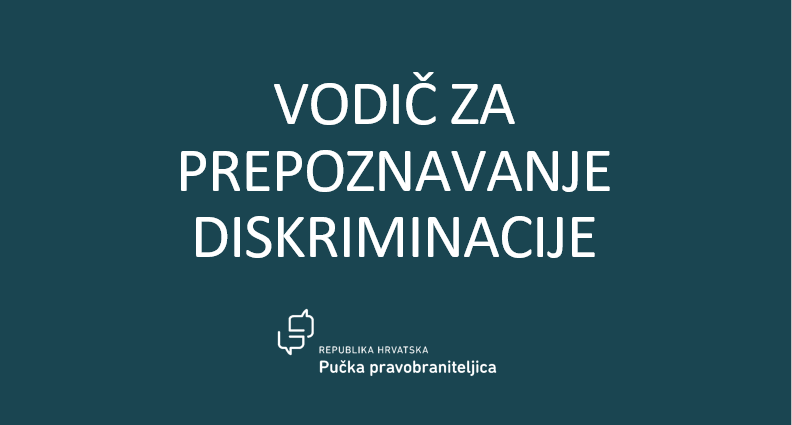To be free from discrimination means to be a full-fledged member of society, without fear that the prejudices and stereotypes of others (or of the system) will build a wall between you and the life you are striving to achieve.
Equality in Croatia is guaranteed by the Constitution, European and international law—which form part of Croatian legislation—and through several laws, primarily the Anti-Discrimination Act, which is the umbrella law for combating discrimination in the Republic of Croatia.
However, equality is still often unattainable—every fourth person in Croatia reports experiencing discrimination at least once in five years, and a large majority of citizens identify discrimination as one of the most significant social issues. This was demonstrated in a survey conducted by the Ombudswoman and confirmed the ongoing need for strong efforts to combat discrimination.
An opportunity to raise awareness of this issue is Zero Discrimination Day, observed every year on 1 March.
To support efforts to inform the public about what discrimination is, how to recognize it and report it, we remind you of the Guide for Recognizing Discrimination, which provides answers to the most important questions.
Download the Guide [here] and share it with anyone who may find it useful.
Why it is important know how to recognize discrimination
In public discourse, various examples of injustice are often described as “discrimination,” which is not always accurate. That is, while all discrimination is a form of injustice, not all injustice constitutes discrimination in the legal sense.
This distinction is not merely formal—it determines what a person can do to protect themselves. The Anti-Discrimination Act prescribes forms of protection such as filing a complaint with the Ombudswoman, initiating a special lawsuit for protection from discrimination, shifting the burden of proof in civil proceedings to the defendant, and protecting the victim from further victimization.
That is why it is important to know what is considered discrimination under the Anti-Discrimination Act.
Simply put, discrimination is any less favorable treatment of a person due to one or more of their characteristics (grounds).
The grounds for discrimination listed in the Anti-Discrimination Act are: race or ethnic origin or skin color; sex; language; age; political or other belief; property status; education; national or social origin; trade union membership; disability; social status; marital or family status; health status; genetic heritage; religion; gender identity and expression; and sexual orientation.
One of the most easily recognizable forms of discrimination is treating a person less favorably than another in a comparable situation, based on one or more of the discrimination grounds listed in the Act (direct discrimination).
Examples include not hiring a Roma person due to their ethnicity, or dismissing a worker because of her membership in a trade union or a political party. On the other hand, if a landlord only accepts tenants without pets, this does not constitute discrimination.
Discrimination also includes:
- when an apparently neutral provision, criterion, or practice puts people at a disadvantage due to one of the discrimination grounds, unless it can be justified under the law (indirect discrimination);
- harassment, i.e. unwanted conduct that violates a person’s dignity and creates a fearful, hostile, degrading, or offensive environment based on one of the discrimination grounds;
- sexual harassment, i.e. verbal, non-verbal, or physical unwanted conduct of a sexual nature;
- inciting discrimination;
- failure to provide reasonable accommodation for persons with disabilities;
- segregation, i.e. forced and systematic separation based on one of the discrimination grounds.
Learn more about discrimination in the Guide for Recognizing Discrimination and in the Ombudswoman’s reports to the Croatian Parliament.





